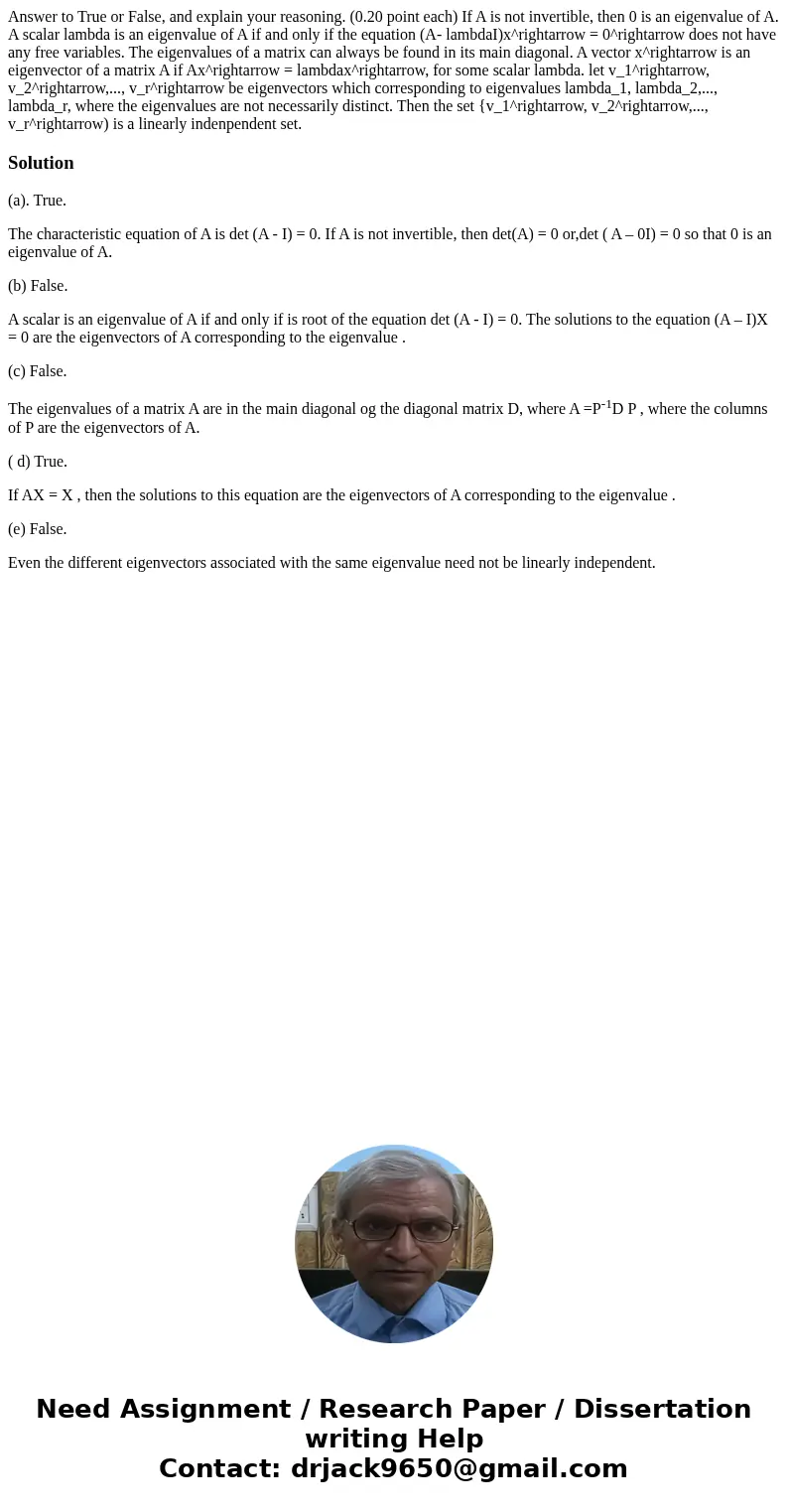Answer to True or False and explain your reasoning 020 point
Answer to True or False, and explain your reasoning. (0.20 point each) If A is not invertible, then 0 is an eigenvalue of A. A scalar lambda is an eigenvalue of A if and only if the equation (A- lambdaI)x^rightarrow = 0^rightarrow does not have any free variables. The eigenvalues of a matrix can always be found in its main diagonal. A vector x^rightarrow is an eigenvector of a matrix A if Ax^rightarrow = lambdax^rightarrow, for some scalar lambda. let v_1^rightarrow, v_2^rightarrow,..., v_r^rightarrow be eigenvectors which corresponding to eigenvalues lambda_1, lambda_2,..., lambda_r, where the eigenvalues are not necessarily distinct. Then the set {v_1^rightarrow, v_2^rightarrow,..., v_r^rightarrow) is a linearly indenpendent set.
Solution
(a). True.
The characteristic equation of A is det (A - I) = 0. If A is not invertible, then det(A) = 0 or,det ( A – 0I) = 0 so that 0 is an eigenvalue of A.
(b) False.
A scalar is an eigenvalue of A if and only if is root of the equation det (A - I) = 0. The solutions to the equation (A – I)X = 0 are the eigenvectors of A corresponding to the eigenvalue .
(c) False.
The eigenvalues of a matrix A are in the main diagonal og the diagonal matrix D, where A =P-1D P , where the columns of P are the eigenvectors of A.
( d) True.
If AX = X , then the solutions to this equation are the eigenvectors of A corresponding to the eigenvalue .
(e) False.
Even the different eigenvectors associated with the same eigenvalue need not be linearly independent.

 Homework Sourse
Homework Sourse